Georgia: The Possible Birthplace of Wine and Definite Birthplace of Stalin
If geography really is destiny, then the Georgian situation has understandably necessitated a stiff, perpetual drink.
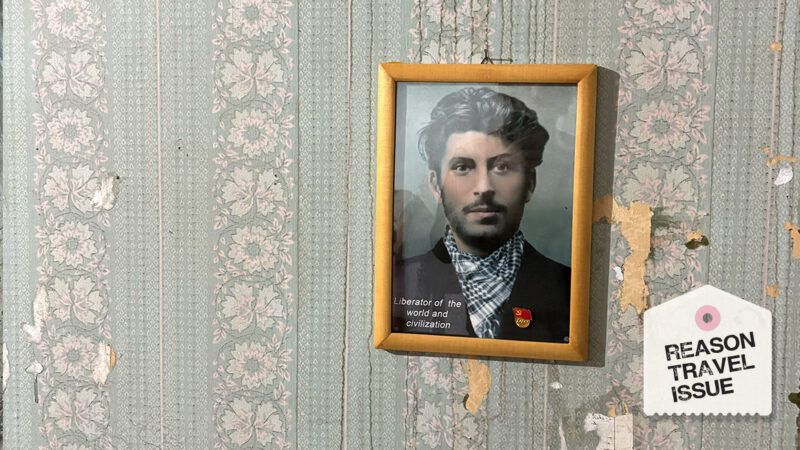
This is part of Reason's 2025 summer travel issue. Click here to read the rest of the issue.
The people of Georgia might well be the first folks who ever got properly wine-drunk.
Straddling the Promethean Caucasus mountains, wedged between both Black and Caspian seas, Georgia is a cultural crossroads between Europe and Asia. Its fertile valleys and slopes yielded the oldest archaeological evidence of wine production currently on record. During my short yet delightfully buzzed visit last fall, it was apparent that they've only gotten better at both the making and the drinking. Georgian winemaking traditions are hard won; in the Soviet era, many indigenous grape varieties were lost to brutish demands for quantity, not quality. Some families preserved precious varieties in secret.
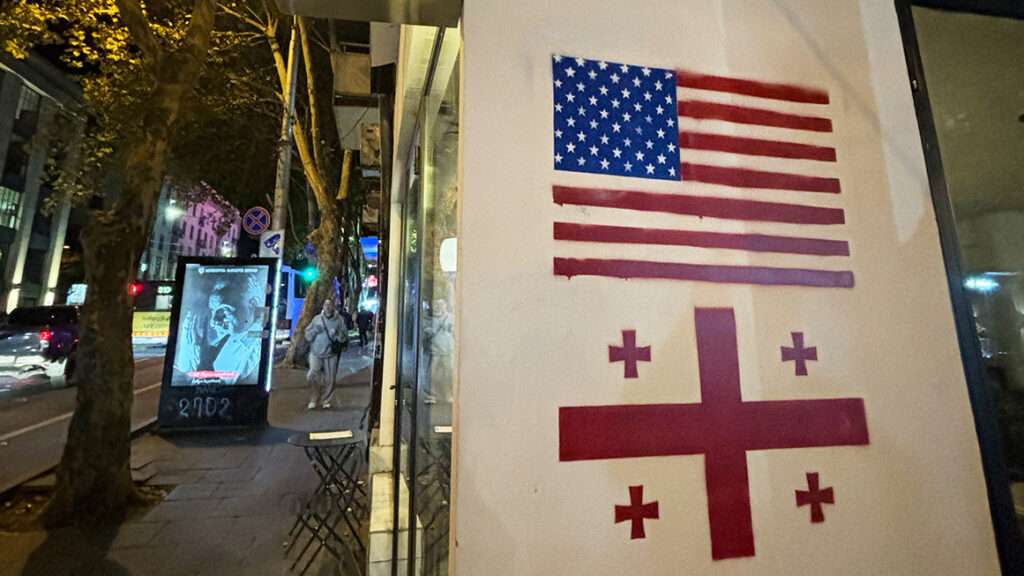
I saw this heady spirit in the small town of Kachreti at the Burjanadze family home. At a traditional supra (banquet), my host and tomada (toastmaster) poured glass after glass of his own inky red Saperavi, each after a heartfelt toast, before bursting into a polyphonic song alongside his father. The wine came from a qvevri, a traditional clay pot submerged in his backyard, and the bottle's label was stamped with his family's fingerprints, several of whom shared the table and the cherished moment.
Georgia also gave the world one of the 20th century's worst tyrants, Josef Stalin. Born in Gori, west of capital city Tbilisi, Stalin's dark shadow lingers. Venture across the Kura River a few miles outside the city center and find yourself down a dank underground museum where a young revolutionary Stalin printed secret pamphlets during the Bolshevik Revolution. A charming yet perhaps contextually overeager docent asks you to sign a guest book scattered among USSR memorabilia.
Soviet-era grisliness aside, it's an understatement to say Georgian politics have been complicated. Surrounded on all sides by great powers, the seismic situation encompasses many languages, plus the friction of competing political ideas and faiths in Armenia and Azerbaijan. Most notably it shares a contested border with Russia, the bear next door with an appetite.
If geography really is destiny, then the Georgian situation has understandably necessitated a stiff, perpetual drink.
After the Soviet Union's collapse and at least a decade's worth of post-Soviet corruption, a young Mikheil Saakashvili climbed Parliament's stairs with flowers in hand. The Rose Revolution swept Saakashvili into office peacefully; he reduced government corruption and increased economic liberalization, spurred on by his libertarian-leaning minister of economy, Kakha Bendukidze. Georgia's economy received a jolt, as if the whole country had taken a shot of its beloved brandy chacha (second only to the wine) and raised eyebrows in the Western world with the speed and success of those reforms.
Though Saakashvili left a mixed legacy (he's now imprisoned on abuse of power charges), the stickiness of those free market ideas and reforms is notable, however fraught the country remains. Girchi, the only official libertarian party in a post-Soviet state outside of Russia, was formed by dissenters from Saakashvili's United National Movement party after his collapse. It has since advocated both economic and drug liberalization, while staging stunts against conscription and state crackdowns on sex workers, going so far as opening a brothel in its party headquarters.
Georgia remains a swirl of political foment, as I realized by stumbling accidentally onto Rustaveli Avenue before fall parliamentary elections. Thousands of Georgians paraded, draped in Georgian and European Union colors, marching in support of then-President Salome Zourabichvili, as she tried to hold off billionaire and former Prime Minister Bidzina Ivanishvili's Georgian Dream party. Ivanishvili's ties to Russia and presence in politics still loom large, much like his Bond villain–esque mansion perched high above Tbilisi.
Despite the turbulence, pockets of Tbilisi buzz with young entrepreneurs reclaiming and redefining the Georgian trajectory, one pointed decidedly west. Down an unassuming street, there's Lasha Devdariani selling handcrafted silk robes from his cozy studio, some of which cloaked Tilda Swinton in Only Lovers Left Alive. Walk into Sololaki where traditional meets modern at Iasamani restaurant—bare candles burning over peeling paint, cracked tiles, and khachapuri hint at the history of both the room and the nation. Around the corner the gents at 41 Degrees Art of Drinks sling cocktails from a handwritten book that taste like the throng on Rustaveli Avenue felt: fiery and self--assured.
John Steinbeck heard of Georgia's magic before arriving in 1947 at the start of the Cold War. In A Russian Journal,he noted: "People who had never been there and possibly never could go there spoke of Georgia with a kind of longing and great admiration. They spoke of Georgians as supermen, as great drinkers, great dancers, great musicians, great workers and lovers. And they spoke of the country in the Caucasus and around the Black Sea as a kind of second heaven."
More people, especially free thinkers and drinkers, should visit. Drink the wine, pet the dogs (tagged strays roam lazily, freely, even into bars and hotel lobbies), shoot the chacha, stare at giant Jesus in Holy Trinity Cathedral, devour khinkali (hands only), and let the hospitality intoxicate you in its distinctly Georgian way.
6 Days in Georgian Wine Country
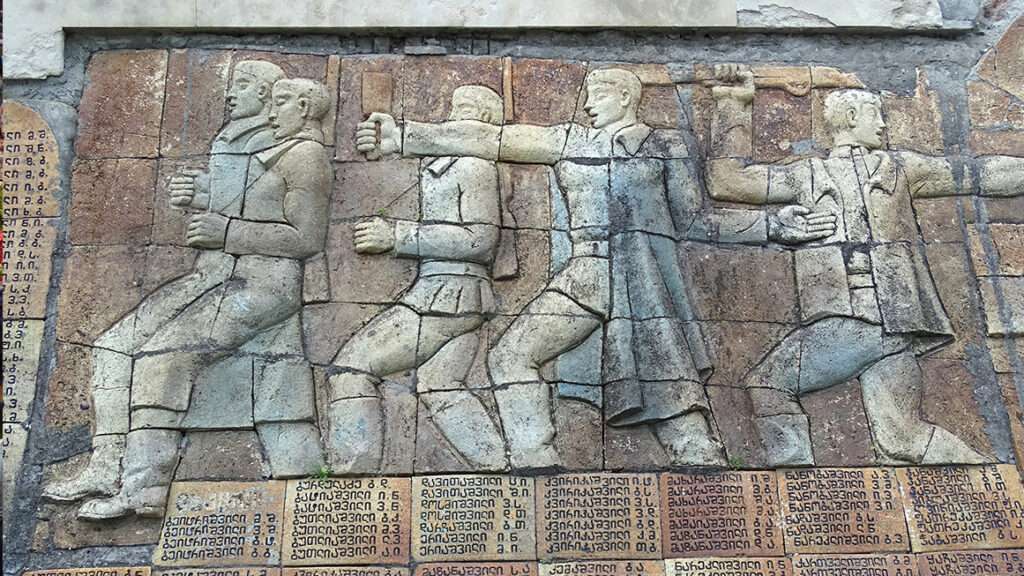
Day 1
Flight to Tbilisi
It's best to have a car to see Georgia at your own pace. Pick up a rental and head to your hotel.
Stay in Tbilisi for three nights.
Day 2
Explore Tbilisi
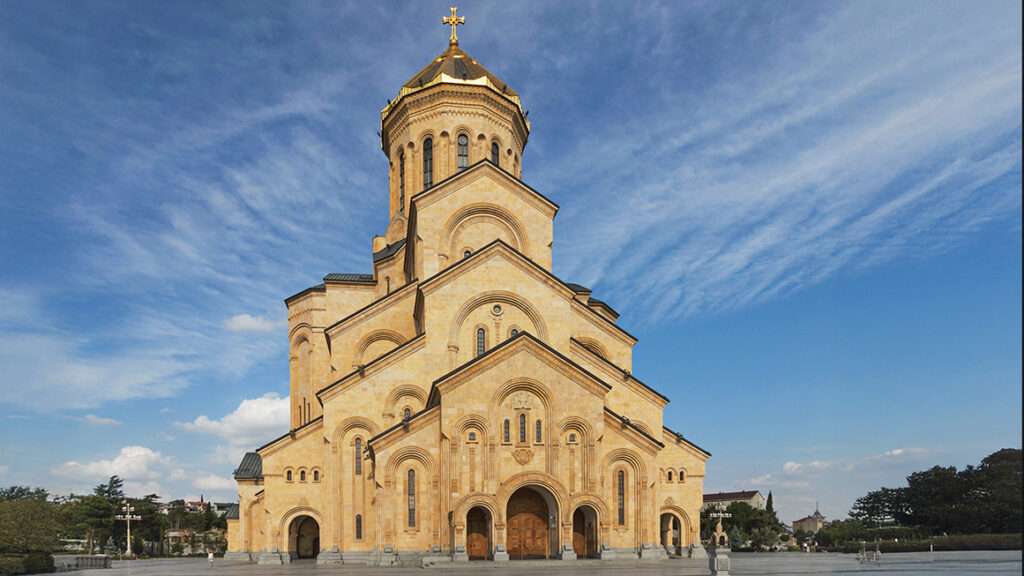
Start your adventure by getting a feel for Georgia's capital, Tbilisi. This is a place where the old meets the new, offering a mix of historic sites and trendy bars and restaurants.
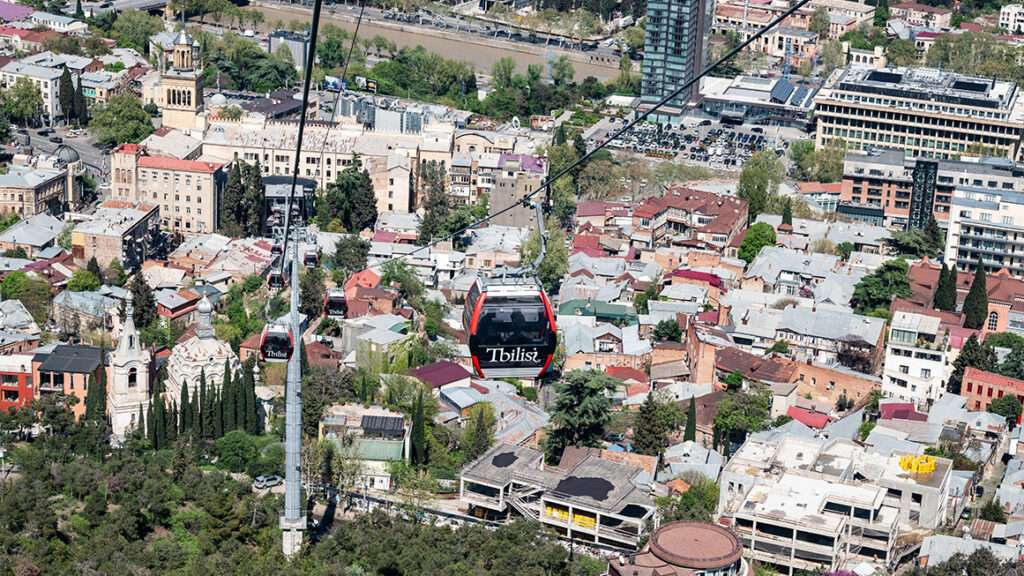
The Holy Trinity Cathedral of Tbilisi is the largest Orthodox church in Georgia and boasts fantastic views of the city. Next, take the Tbilisi Funicular up to Mtatsminda Pantheon, where some of Georgia's most prominent writers, artists, and national heroes are buried. Up there, you can enjoy Mtatsminda Park and get a view of former Prime Minister Bidzina Ivanishvili's stunning house. Take the Rustaveli-Mtatsminda Cable Car back down the hill to end the trip.
Day 3
Free day in Tbilisi
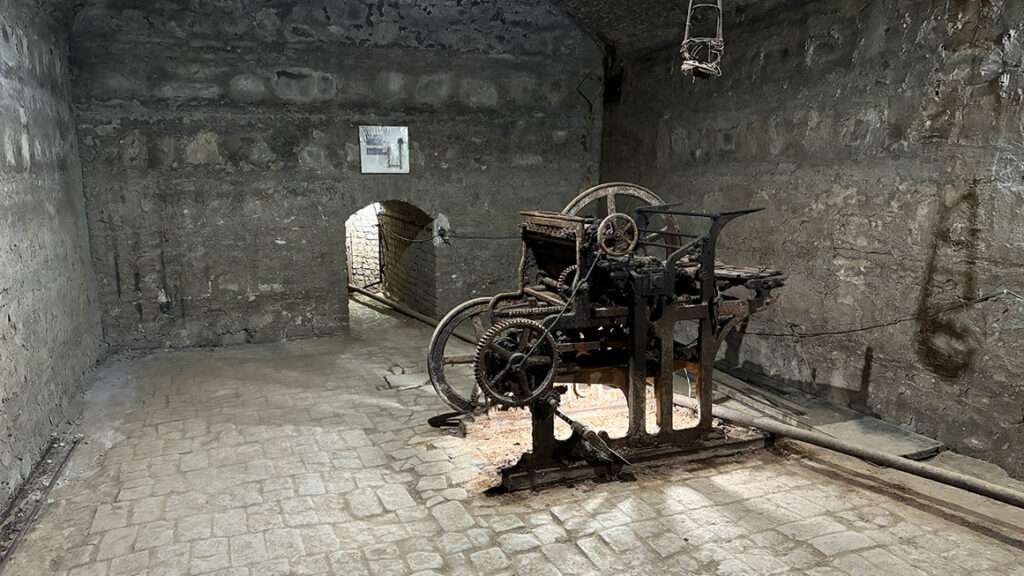
Go where the wind blows today, and be sure to drink some wine along the way.
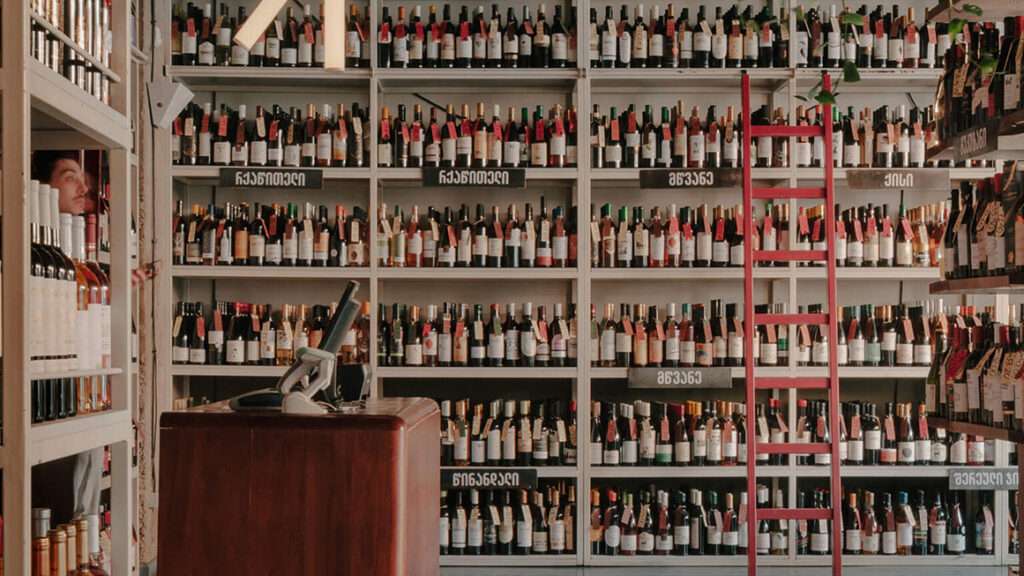
Optional activities: 8000 Vintages wine shop and bar, Cafe Daphna, Dry Bridge Market, Queen Darejan Palace, Tbilisi State Academy of Arts, the National Gallery, Underground Printing House Museum
Day 4
Self-Drive to Sighnaghi
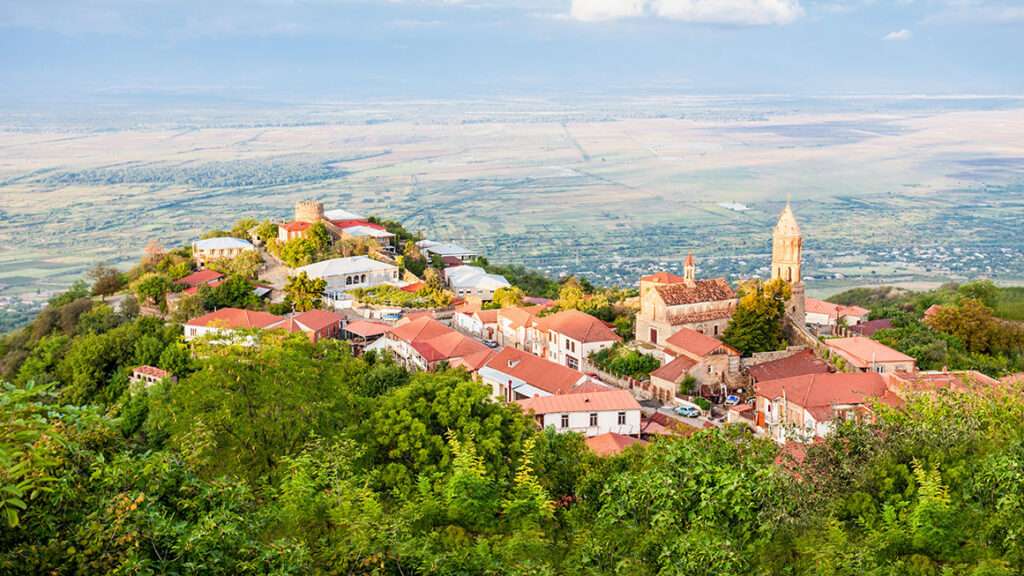
Head east for your two-hour drive to Sighnaghi, known as "the city of love" and located in the heart of Georgia's wine region. Revel in the colorful buildings, the medieval architecture, and the stunning Caucasus mountains on the horizon. And of course, the wine. Visit the Kerovani Winery to sample an assortment of Georgian wines and learn about the traditional Kakhetian method of winemaking in qvevri (clay vessels).
Stay in Sighnaghi for two nights.
Day 5
Free day in Sighnaghi
Enjoy your final day in Georgia!
Optional activities: Sighnagi National Museum, St. George Church, Marriage Palace, The Sighnaghi World War II Memorial, Sighnaghi Wall
Day 6
Flight Home
Drive back to Tbilisi for your return flight home.
